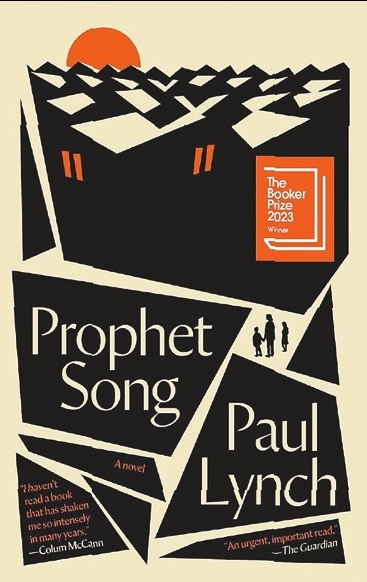
In Paul Lynch’s 2023 Booker Prize winner “Prophet Song,” the world ends slowly and then all at once in Ireland. Two years after coming into power, the National Alliance Party has passed the Emergency Powers Act “in response to the ongoing crisis facing the state,” giving seemingly boundless powers to the Garda National Services Bureau, a new secret police force. To the GNSB, people who exercise constitutional rights that were previously foundational to liberal democracy are seditious. But Lynch’s focus is not on the NAP’s rise to power or the inner workings of the authoritarian state. Instead, he zeroes in on one family’s experience of the end of the world knocking on their door. Eilish Stack is a senior manager at a biotech firm and also a mother wrangling her four children, who range in age from mere months old to 16. Her husband, Larry, is the deputy general secretary of the Teachers’ Union of Ireland. By the end of the book’s first chapter, Larry has been disappeared by the GNSB along with other trade unionists and teachers for engaging in a peaceful union march, and Eilish’s waking nightmare has started. With his winding, dread-filled sentences and without paragraph breaks, Lynch plunges readers into this nightmare and scarcely provides any space to breathe. Lynch’s style mimics the unfolding of Eilish’s confrontation with her country’s drift into totalitarian rule and civil war, and with what she must do to keep her family together. There are passages in “Prophet Song” that echo with 2020’s brutal police crackdowns on Black Lives Matter marches and former U.S. President Donald Trump’s increasingly autocratic and apocalyptic language. Some of the ghastliest scenes feel pulled from current reports of Israel’s relentless bombardment of the Gaza Strip. None of these events had yet occurred when Lynch began writing the book four years ago. He has said that he was then thinking of “the unrest in Western democracies and the problem of Syria — the implosion of an entire nation, the scale of its refugee crisis and the West’s indifference.” And yet, the novel is not so much political as metaphysical. It’s about grief for the things we cannot control, grief for what cannot be understood, grief for what lies beyond us. Throughout “Prophet Song,” Eilish, a scientist dedicated to empirical fact and observable reality transported to a world where “the truth of anything cannot be known,” learns again and again that there is so little we can control and understand in the face of societal collapse. | 
